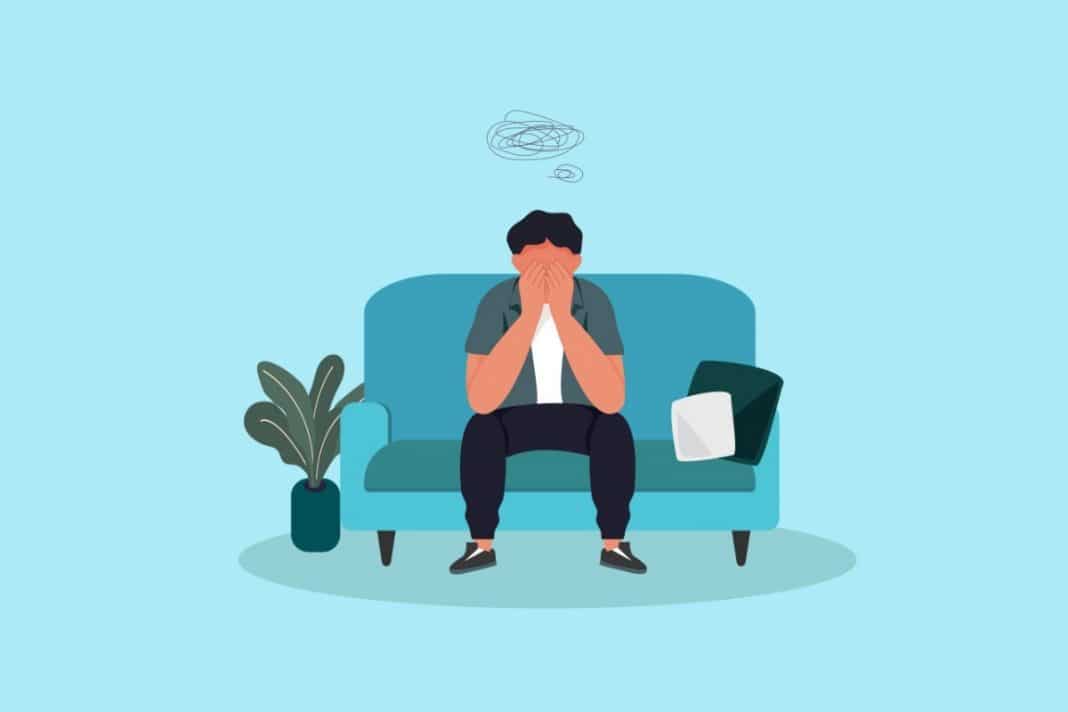Whether it’s your first day of high school, you just had a fight with your bestie, you’ve had a breakup with your first love, or you’re about to go on an audition, you’re not alone! We have all been through these stress, anger, and anxiety-inducing situations, at some point in our lives. These moments can easily make us lose control of ourselves and even make rash decisions that we quickly regret.
Stress has become a normal part of the modern day-to-day that we’re living in today. From being late for work in the morning to pulling an all-nighter to complete work before its deadline, we all experience stress and anxiety almost all the time.
That said, today I am going to give you some secret methods to a stress-controlled life. Stressful situations will continue to come, but if you follow these tips to calm down, then a happier life is not so far away.
1. Get Some Fresh Air
Fresh air reduces anxiety and boosts energy levels. Don’t believe me? Even doctors say so! The next time you’re having a hard time coping with a stressful situation, go outside and take a deep breath. Whenever your lungs are exposed to fresh air, serotonin—the neurotransmitter that controls mood—is released in the body, making you feel calm and relaxed. Isn’t that amazing?
If you can find flowers, or even essential oils, like lavender and jasmine close by, their scents can act as the icing on the cake! The smell of both of these flowers relieves stress and helps you calm down. Popping into the garden or taking a stroll through the woods can indeed transform a grumpy face into a happy one.
2. Listen to Music
Words fail to describe the power of music! I’m sure you agree. Like me, you’ve likely put on your headphones and let Spotify take you into another dimension when in a bad situation.
It is a well-established fact that music has a soothing power. The beats and melodies—even sometimes the somber notes of Beethoven and Chopin—can touch our impalpable emotions and, thus, are great at managing stress. Music has beneficial effects on our psychological functions too. It slows the pulse and heart rate, lowers blood pressure, and decreases stress hormones. (1)
3. Exercise
Nearly 40 million adults are affected by anxiety disorders (2), which are surely not envious conditions. Studies have proven that physically active people have lower rates of anxiety (3). Even a few minutes of brisk walking can be as beneficial as a full-fledged 45-minute workout.
Exercising is similar to taking aspirin for a headache and can elevate a depressed or angry mood. It diverts one’s mind from any stressors. Moreover, getting the heart rate up changes the brain’s chemistry and releases endorphins, the anti-anxiety neurochemicals. The frontal regions of your brain are activated when you exercise, which controls the amygdala, the human body’s system responsible for reactions.
4. Visualize Yourself Being Calm
Visualization mentally transports you to a place where you can be at peace, ultimately helping you fight stress. This method works by diverting your mind from negative thoughts that cause stress. It lowers your flight-or-fight response, which is triggered when you have an anxiety attack.
This powerful technique uses mental imagery to achieve a calmer state of mind. It is similar to daydreaming because it involves your faculty of imagination. When anxious and stressed, we think of the worst-case scenarios and it becomes much easier to be worrisome. Visualization is something similar but the reverse—while visualizing, you simply imagine yourself calm, which, in reality, actually does assist in calming you.
5. Think of Something You Find Funny
Giggles and guffaws are most likely just what you need to calm down. No doubt, laughter is the best medicine as it soothes tension and relaxes the muscles. Laughter stimulates circulation, which further helps in reducing stress. A boisterous laugh also enhances your fresh air intake and enables the brain to release endorphins.
You can additionally try turning your funny side on by doodling your anxiety as a silly cartoon character. You can even give it a funny name and accent to help concentrate on something else.
6. Progressive Muscle Relaxation (PMR)
American physician Edmund Jacobson introduced this anxiety-reduction technique in the 1920s. Most often, stress causes muscle tension, and PMR works because it relaxes the body’s major muscle groups. It can give you more control over your body’s anxiety response.
This relaxation training lowers the heart rate, calms the mind, and reduces tension in the body. PMR also increases a person’s awareness of the negative impacts that anxiety and stress can have on them, both physically and emotionally.
7. Breathe
“Take a deep breath and walk through the doors, it’s the morning of your very first day” ( “Fifteen” by Taylor Swift). Taylor Swift is a prime example of someone who surely understands the importance of deep breathing!
Proper breathing is obviously necessary to survive, but it also helps one calm down during stressful situations. When in stress, people take shallow, rapid breaths that are derived only from the chest. This type of breathing, known as chest breathing, upsets the oxygen and carbon dioxide exchange, increases heart rate and muscle tensions, and increases the chances of a panic attack.
Some simple breathing exercises will help you calm down, making your life easier and happier. Try inhaling deeply, but slowly, through your nose for five seconds. Make sure to keep your shoulders relaxed while breathing. Now, hold your breath for 20 seconds before exhaling for another ten seconds. Repeat this multiple times to reduce stress and to relax.
8. Challenge Your Thoughts
A stressed mind is a breeding ground for innumerable negative and irrational thoughts. Many of them are worst-case scenarios, and it’s easy to get caught in the vicious cycle of “what-if” questioning. One effective way to calm down while in this type of situation is to challenge all of these thoughts.
Stop the chain of negative thoughts by asking yourself a few logical questions. Start by asking whether what you are thinking is likely to happen, if it is a rational thought, or if it has ever happened to you before. This counter questioning can help you think practically and come to calmer conclusions.
9. Jot Down Your Thoughts
The next time you find yourself to be stressed, grab a journal, and start writing down your thoughts. Do not bother with correct spelling, punctuation, or grammar. Simply write whatever comes to your mind at that exact moment. And to take things a step further, try saying “calm down” aloud after writing a few sentences.
Better still, make journaling a habit. You can do it daily, weekly, or monthly. Journaling helps fight anxiety as it enables you to articulate and work through any anxious feelings. This is a great preventative measure to keep stress at bay.
10. The 3-3-3 Rule
Ever heard of “third time’s a charm?” The number 3 can do its magic to help you fight stress too.
Anxiety and stress pick your mind up from the present and force it into the future; although not a bright one. So, to fight anxiety, the simplest trick is to remain in the present reality instead of hurdling into the vortex of negative hypotheticals for future situations.
The 3-3-3 rule can help you to stay connected with the present moment. When you are in a stressful situation, simply look around and name three things that you see, three sounds that you hear, and move any three parts of your body. This trick can be of immense help in times of trouble.
11. Have Some Tea
Tea is an easy—and delicious—solution for you to calm down and stay relaxed, even during stressful situations. Black tea, green tea, and white tea all contain L-theanine, an amino acid that is also found in coffee. (4)
L-theanine induces a relaxing feeling as it increases serotonin and dopamine. Both of these neurotransmitters regulate emotions, mood, and energy. L-theanine also reduces the brain’s chemicals that are linked to stress and anxiety. It can give you peace of mind while it releases alpha-waves; the same feelings that are triggered when one is meditating. The variety of benefits of L-theanine also include the power to reduce heart rate and blood pressure.
12. Engage Yourself in a Relaxing Task
Distraction and digression are useful paths to take when stressed. Keep yourself busy by doing a relaxing task, such as coloring, doodling, or solving a puzzle. It can be hard to feel anxious if you are busy choosing the right shade of red for your drawing or searching for the missing piece of a puzzle.
These supposedly “mindless” activities can be a huge step toward mindfulness. Such activities can also relax the amygdala, the brain’s fear center; they have the same impact on your brain as meditation. Simple and relaxing activities also generate quietness along with awareness.
13. Chew Gum
Believe it or not, chewing gum can help fight stress and anxiety. Weird, right? But it’s even backed by a few scientific studies. Chewing gum can actually improve mood and reduce anxiety as it stimulates your brain’s blood flow.
Chewing this miraculous, tiny stick of gum has both immediate as well as long-term benefits. It makes you feel more alert, distracts you from stressors and de-stresses you in as little as ten minutes.
The Last Word
Whew! That was a long list, wasn’t it? Regardless, if you follow even a few of these tips,—if not all—then you will be able to control your monster-like stress like a boss.
Sources:
(1): PLOS One



